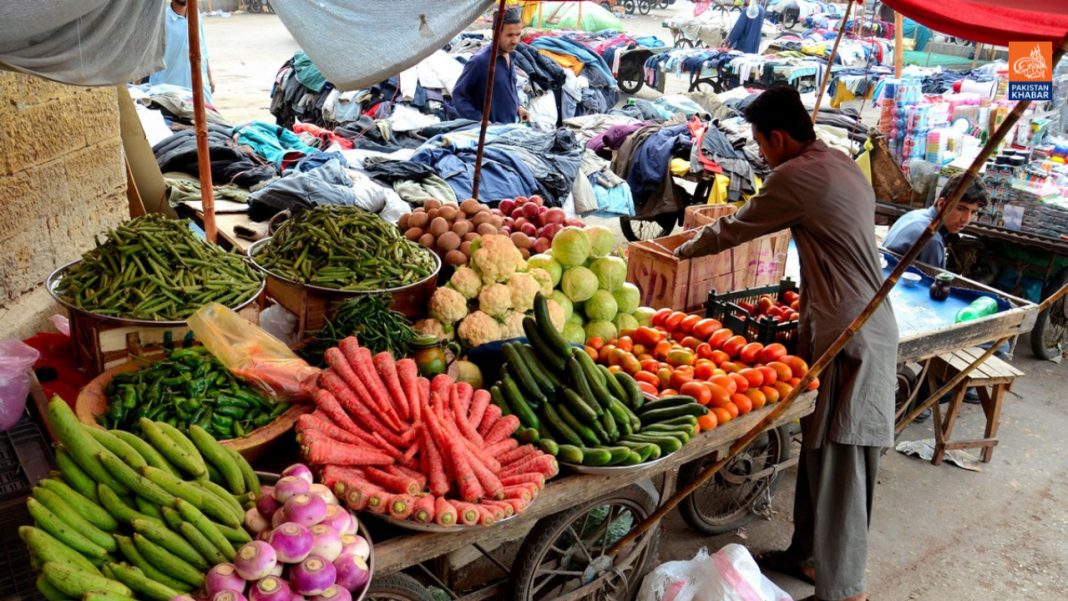In a positive economic development, Pakistan’s inflation rate fell to a 34-month low of 9.6 percent in August 2024, the first time it has dropped to single digits since October 2021, according to the Pakistan Bureau of Statistics (PBS).
This notable decrease offers relief to consumers and policymakers, suggesting a potential stabilization after a period of economic instability characterized by rising prices, currency devaluation, and fiscal challenges. However, experts say achieving lasting stabilization will require a significant reduction in the State Bank’s discount rate.
The average Consumer Price Index (CPI) inflation for July-August 2024-25 was 10.36 percent, down from 27.8 percent during the same period last fiscal year. Factors contributing to this decline include stabilizing commodity prices, improved supply chain management, and a relatively stable rupee against major currencies. Despite this, structural economic weaknesses and global economic conditions continue to pose risks.
The Wholesale Price Index (WPI), which reflects producers’ prices, dropped to 6.3 percent in August 2024, the lowest since December 2020, compared to 10.4 percent in July 2024 and 24.3 percent in August 2023. This significant WPI decrease suggests further CPI inflation reduction in the coming months.
The Sensitive Price Indicator (SPI), which tracks weekly prices of essential items, fell to 10.8 percent from 15.7 percent the previous month and 27.9 percent in August 2023. Economists view the data as a positive sign for the country’s decision-makers.
A lower inflation rate could enable the central bank to cut interest rates, which are currently at 19.5 percent, reducing borrowing costs for businesses and households and potentially stimulating economic activity. Reduced interest rates could also help manage the government’s budget deficit and ease the heavy burden of debt servicing, which consumes a significant portion of government revenue.
Currently, the real interest rate stands at 9.9 percent, having turned positive in March 2024 for the first time in 37 months. This increase in the real interest rate has led the State Bank of Pakistan (SBP) to consider further rate cuts.
Maintaining a high real interest rate risks increasing borrowing costs and straining public finances, especially for countries with significant debt. Economists also attribute the lower CPI figure to a base effect, which can distort the current inflation rate by comparing it to a high previous rate.
August’s inflation rate is notably lower than the peak of 38 percent recorded in May 2023. The CPI was 11.09 percent in July 2024 and 27.4 percent in August 2023. The PBS CPI bulletin highlights that the August 2024 drop was largely due to reduced prices for housing and utilities, which fell to 22.2 percent from 25.3 percent in July 2024.
Transportation costs decreased to 3.17 percent from 12.2 percent, clothing and footwear to 17.3 percent from 18.2 percent, and prices for restaurants and hotels fell to 10 percent from 11.2 percent. Other categories like education, recreation, and healthcare also saw price reductions. However, inflation for food and non-alcoholic beverages increased to 2.5 percent from 1.6 percent in the previous month. On a month-to-month basis, CPI increased by 0.4 percent in August 2024, compared to 2.1 percent in July and 1.7 percent in August 2023.
Core inflation, excluding food and energy costs, moderated to 10.2 percent in August 2024 from 11.7 percent the previous month and 18.4 percent in August 2023. This is the lowest core inflation rate in 28 months.
Urban inflation dropped to 11.7 percent from 13.2 percent the previous month and 25 percent from the same month last year. Rural inflation fell to 6.7 percent from 8.1 percent in the previous month and 30.9 percent in August 2023.
In a related development, Prime Minister Shehbaz Sharif expressed satisfaction with the inflation rate falling to single digits, emphasizing the importance of improving living standards and economic well-being. He credited the decline to the government’s economic measures and the hard work of the economic team.
Minister for Information Attaullah Tarar also praised the decline in inflation as evidence of effective economic policies. He noted that inflation had been 4 percent during the PMLN government in 2018 but surged to 22 percent in subsequent years. He mentioned that the Punjab government had subsidized electricity costs and the federal government had provided Rs50 billion in subsidies to consumers using up to 200 units. Tarar suggested that other provinces should also consider providing similar subsidies and facilitating consumers.




